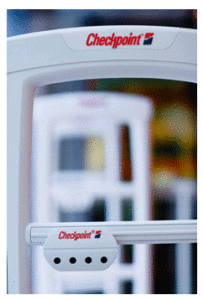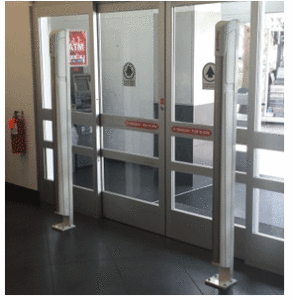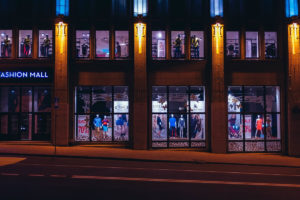 Police Departments across the nation are busy this holiday season launching operations aiming at catching shoplifters. Serial shoplifters go from store to store stealing hundreds of dollars worth of merchandise from each store. Police and retailers alike have been working together to stop this vicious and financially crippling crime. Shoplifters are not necessarily from the area where they commit their crime, there are serial shoplifters that go from state to state, and from store to store, stealing as much as they can. For a retailer, the hundreds of dollars stolen from their store is a financial burden, and jeopardizes their ability to stay open for business.
Police Departments across the nation are busy this holiday season launching operations aiming at catching shoplifters. Serial shoplifters go from store to store stealing hundreds of dollars worth of merchandise from each store. Police and retailers alike have been working together to stop this vicious and financially crippling crime. Shoplifters are not necessarily from the area where they commit their crime, there are serial shoplifters that go from state to state, and from store to store, stealing as much as they can. For a retailer, the hundreds of dollars stolen from their store is a financial burden, and jeopardizes their ability to stay open for business.
For more about this and other stories, follow the links below.
How local law enforcement are working to stop organized retail crime
BUFFALO, N.Y.–
Organized retail crime is rising across the country, according to the National Retail Federation. In Western New York, local law enforcement said they’re constantly working to stop it.
“They’ll steal goods and products from various stores, sometimes taking orders,” Officer Craig Johnson, field intelligence officer for the Amherst Police Department, said. Johnson said organized shoplifting rings operate locally and even statewide.
“[They’ll go] down the thru way through the major cities, Albany, Syracuse, Rochester, Buffalo, even to Erie, Pennsylvania,” he said. HE said the thieves use stolen ID’s and credit cards to rent cars. They’ll even sometimes steal a license plate from another car to put on their rental. Then they spend hours stealing from stores, including items like clothing, medication, baby formula and even appliances. They then move on to another city by the time law enforcement is notified.
“They could be from different states. They could be from downstate New York. It’s very hard to find out that information of who these people are,” Johnson said.
Serial Shoplifters Target Burlington Stores
It was a busy day for Amanda Bean. First, she stole several hundred dollars’ worth of merchandise from a store that shares her surname — L.L.Bean. Burlington police cited her for retail theft and released her. Two hours later, Bean allegedly stole goods valued at several hundred dollars from the Skirackon Main Street. Bean was again charged with retail theft and let go.
Since that day in April, Bean, 33, of St. Albans, pleaded guilty to the L.L.Bean theft, but her stealing apparently hasn’t stopped. She has been arrested on similar charges twice — including on October 22, while she was serving a community-based furlough for the L.L.Bean theft. All told, Bean has been arrested more than 20 times and has at least nine retail theft convictions, along with convictions for other crimes.
Downtown merchants are frustrated with frequent fliers like Bean. While other crimes such as burglary are declining in Burlington, retail theft is escalating, police say. Between 2012 and 2015, annual retail theft calls to Burlington police increased from 341 to 423. This year, the trend continued. The number of calls between January and November 1, 2016, totaled 404, compared to 374 over the same time period last year.
‘Operation Blitz’ To Target Professional Shoplifters
MINNEAPOLIS (WCCO) — As we look to get started on our holidayshopping lists, police will be looking for professional shoplifters.
Beginning on Black Friday, more than 30 Twin Cities law enforcementagencies will launch “Operation Blitz.”
The first-of-its-kind partnership in the state will target organized retail theft and financial fraud.
Police showed WCCO how these professionals do their best to avoid detection.
Take what police say happened at a St. Paul CVS two weeks ago, when a man walked in with a gym bag and loaded it with cleaning supplies. He was out of the store in under 40 seconds.

 s level, but your bottom dollar. When people have a problem, they research a solution. One way to prevent shoplifting is having an electronic article surveillance system installed by a reputable company. Searching for such a company can be daunting. Shoplifting is an issue that needs to be addressed and resolved quickly. Why would you choose Checkpoint equipment from Loss Prevention Systems Inc. (LPSI?)
s level, but your bottom dollar. When people have a problem, they research a solution. One way to prevent shoplifting is having an electronic article surveillance system installed by a reputable company. Searching for such a company can be daunting. Shoplifting is an issue that needs to be addressed and resolved quickly. Why would you choose Checkpoint equipment from Loss Prevention Systems Inc. (LPSI?) nce and typically resolve potential issues. With its strong frame and Evolve capabilities, it will last a long time and is “future proof”.
nce and typically resolve potential issues. With its strong frame and Evolve capabilities, it will last a long time and is “future proof”.  Can you believe we are in December already? This year has flown by and we’re in the home stretch. For many, many small and large businesses alike, this next month is crucial to profitability. Often times, the 4
Can you believe we are in December already? This year has flown by and we’re in the home stretch. For many, many small and large businesses alike, this next month is crucial to profitability. Often times, the 4
 In the previous article, I gave some great tips on how to prevent and prepare for a robbery. Like many things, it’s impossible to provide a solution that is all encompassing. After I penned that article I couldn’t help but think that there was more that I could share; more that I should share. I draw on over a decade’s time spent in the LP field and this is one of those topics that I just can never stress enough to my store managers. So, what else can you do to limit a robbery and/or cash loss?
In the previous article, I gave some great tips on how to prevent and prepare for a robbery. Like many things, it’s impossible to provide a solution that is all encompassing. After I penned that article I couldn’t help but think that there was more that I could share; more that I should share. I draw on over a decade’s time spent in the LP field and this is one of those topics that I just can never stress enough to my store managers. So, what else can you do to limit a robbery and/or cash loss?
 The holiday season is officially under way and your stress level is about to go into overload. When we’re overly stressed bad things happen to us mentally, emotionally and physically: headaches, digestive issues, eating too much, concentration problems, decreased impulse control, increased emotional sensitivity, poor planning ability and sleep disturbances.
The holiday season is officially under way and your stress level is about to go into overload. When we’re overly stressed bad things happen to us mentally, emotionally and physically: headaches, digestive issues, eating too much, concentration problems, decreased impulse control, increased emotional sensitivity, poor planning ability and sleep disturbances.
 This is the best time for retailers. We make a good chunk of our profits during the last 3 months of our fiscal year. Walk into any major retailer right now and you’ll already see a litany of holiday themed gifts, home décor and all things red and green. We also tend to beef up our staff this time of year as well. Some of us hire part-time works, some may even add a full-time position or two and a great many of us will employ temporary workers. The threat of employee theft also peaks around this time as well.
This is the best time for retailers. We make a good chunk of our profits during the last 3 months of our fiscal year. Walk into any major retailer right now and you’ll already see a litany of holiday themed gifts, home décor and all things red and green. We also tend to beef up our staff this time of year as well. Some of us hire part-time works, some may even add a full-time position or two and a great many of us will employ temporary workers. The threat of employee theft also peaks around this time as well. 